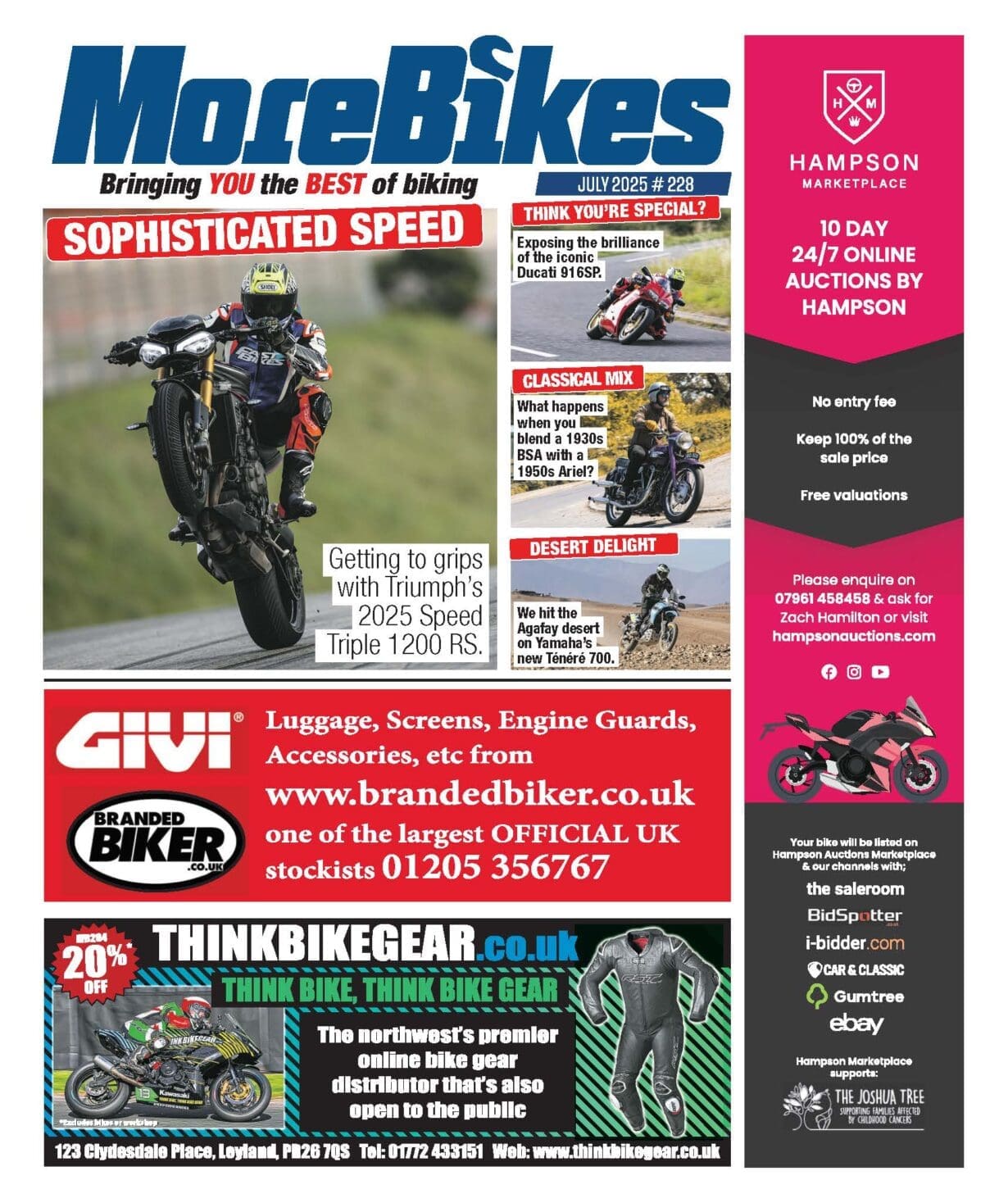Thinking about getting on two wheels? Now it’s time to tackle the Module One test.
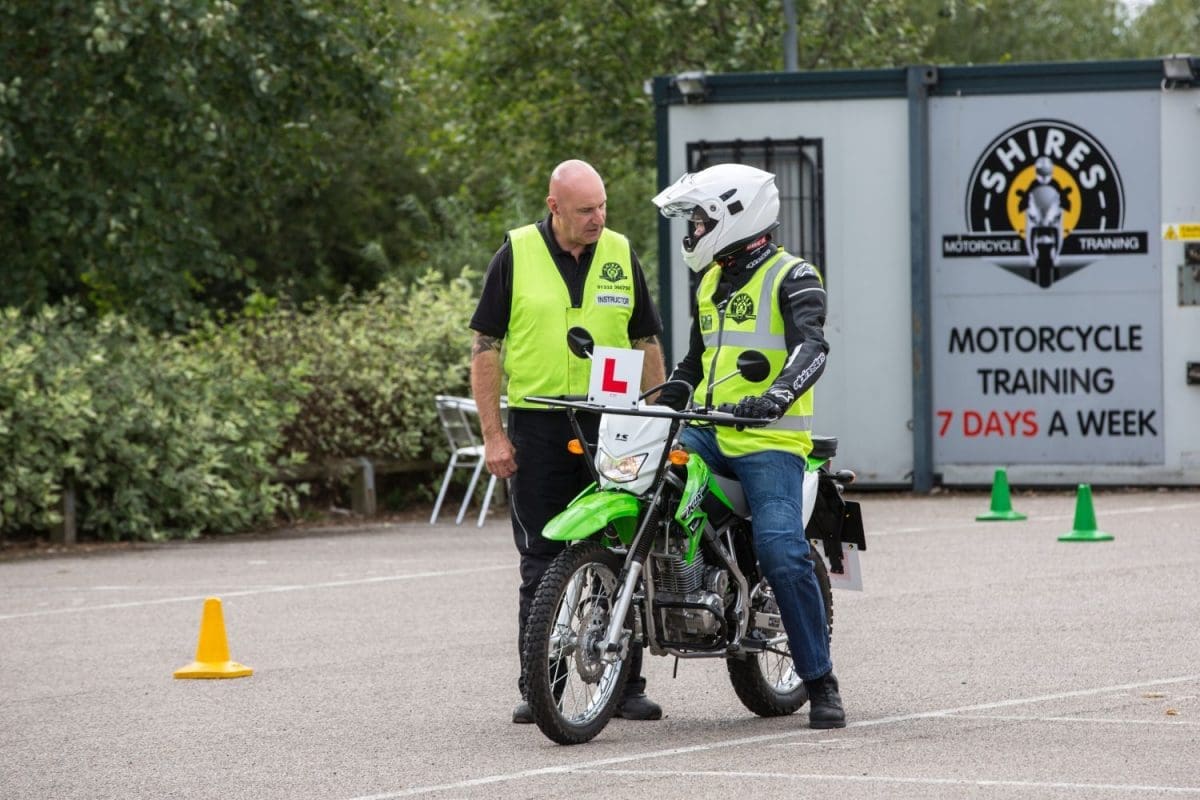
MODULE ONE
Ok, so you’ve decided you’d like to ride a motorcycle – and you’ve got your hands on your Compulsory Basic Training certficate. The next step to get your hands on your full motorcycle licence is Module One.
For the uninitiated, the Module One motorcycle test is simply an exercise in bike control – the examiner will instruct you to complete a number of slow and high speed manoeuvres around a selection of cones (in a closed, off-road environment). It might look pretty complicated, but don’t panic, broken down to its individual elements it’s all relatively straightforward.
WHAT’S INVOLVED
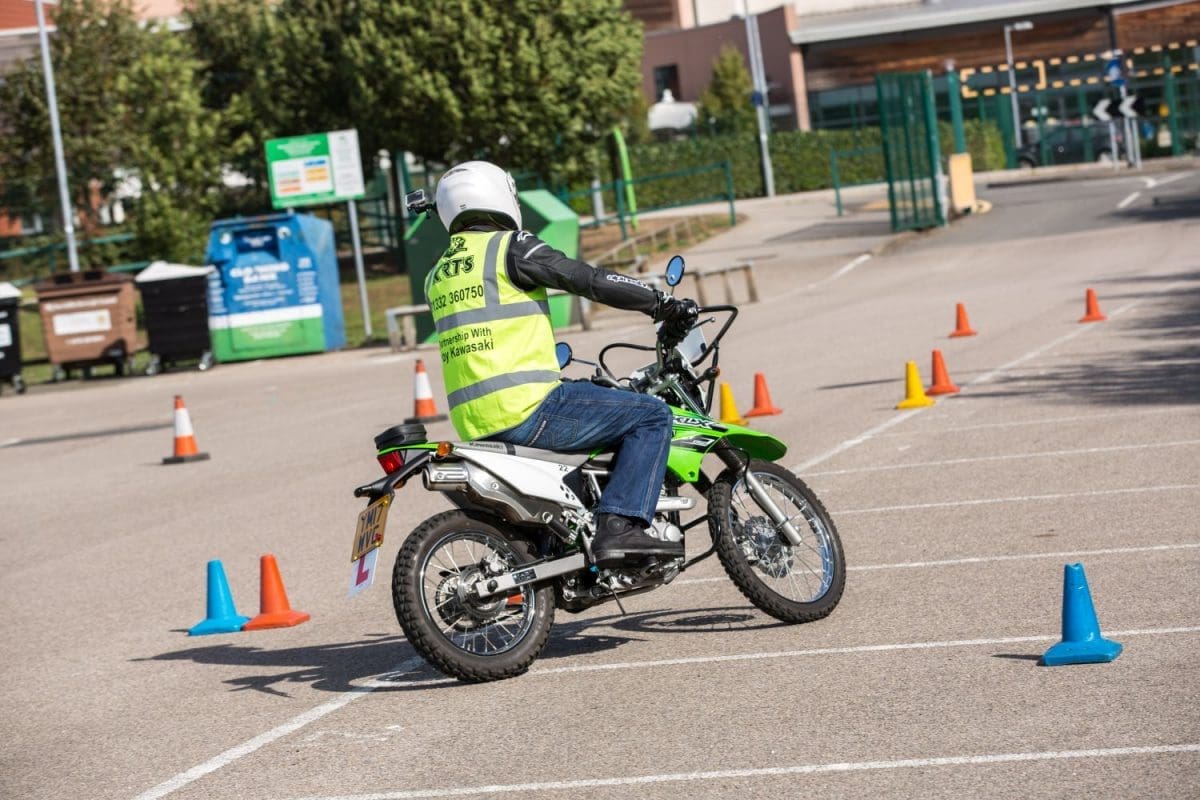
The module one test is made up of nine individual elements – and typically takes around 20 minutes. Here’s a breakdown of what you’ll be getting up to:
- Wheeling the motorcycle
- Using the stand
- Riding a slalom
- Riding a figure of 8
- A slow ride
- A U-turn
- Cornering and a controlled stop
- Cornering and an emergency stop
- Cornering and hazard avoidance
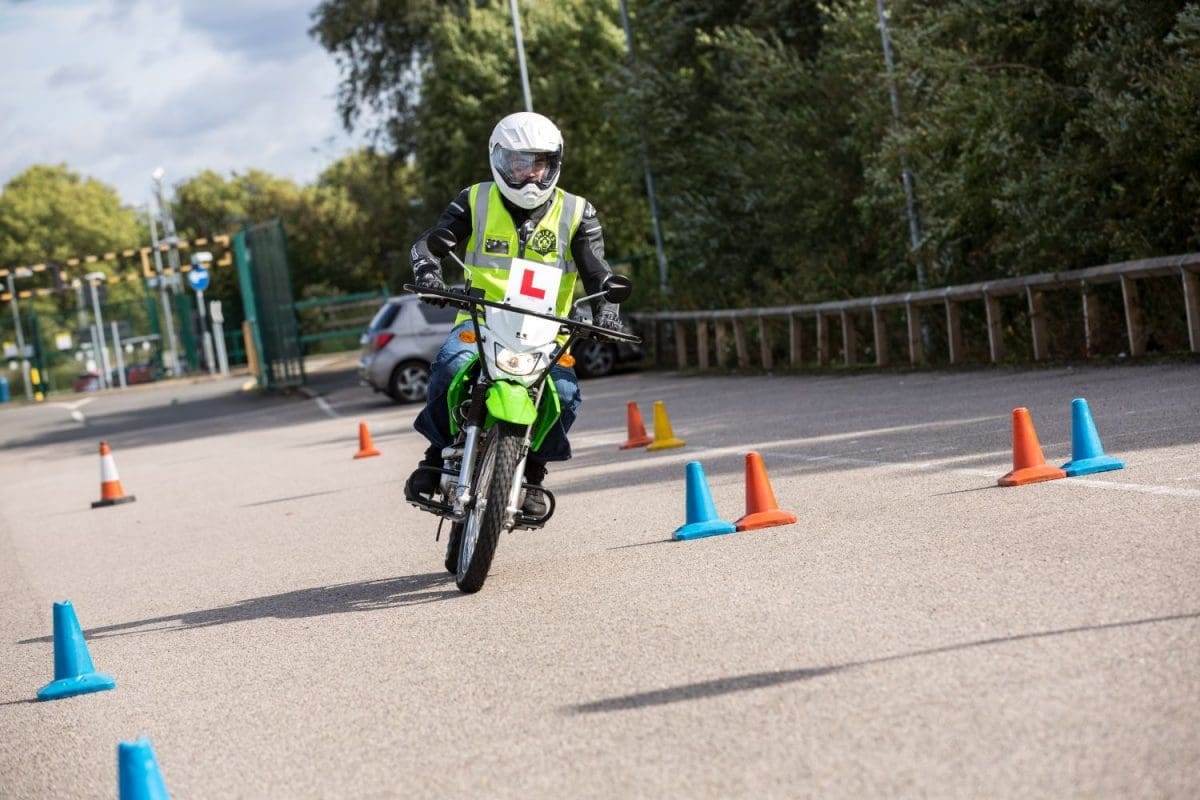
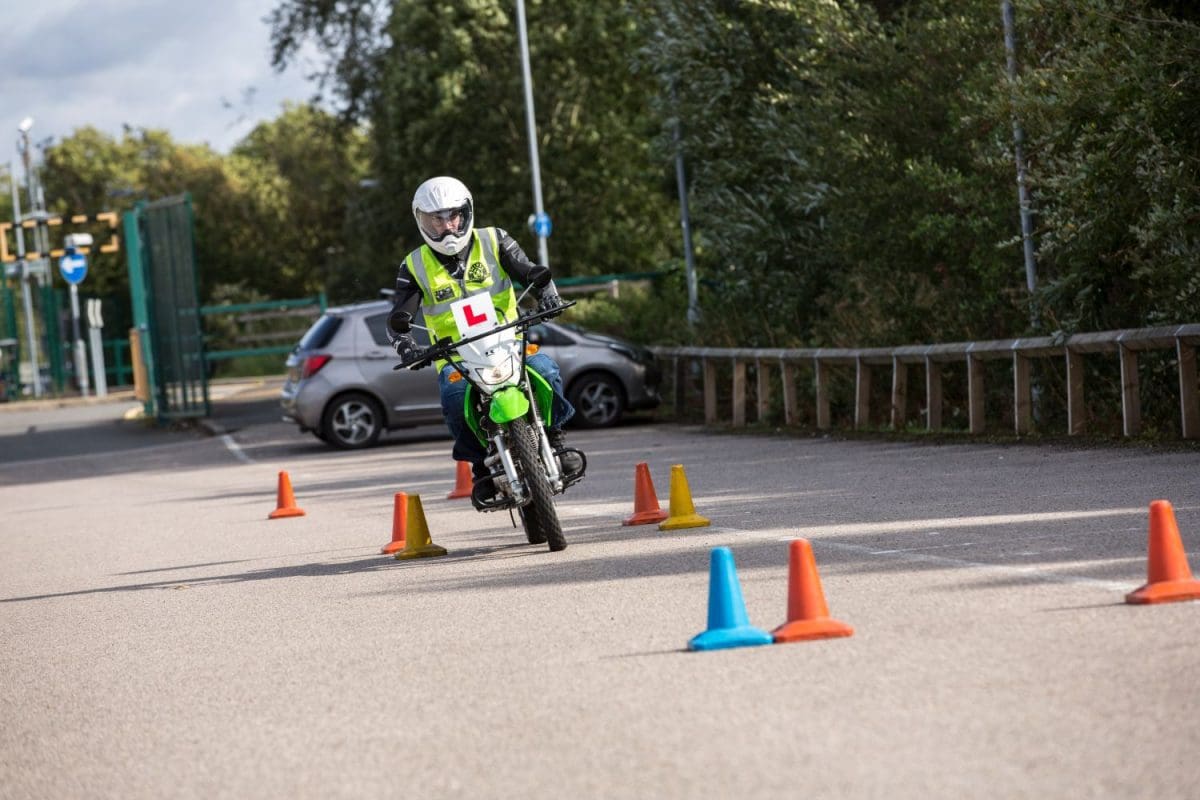
It’s worth noting, that for the hazard avoidance and emergency stop exercises you must ride at a minimum speed of 19mph on a moped and 31mph on a motorcycle. The examiner will be looking out for dangerous faults (these involve actual danger to you, the examiner, the public or property), serious faults (these are potentially dangerous), riding faults (these aren’t potentially dangerous, but could become serious if you keep making the same mistake). You’ll pass module one if you make no serious or dangerous faults and no more than 5 riding faults.
If you remember that the test is simply about showing that you have full control over the motorcycle, while constantly assessing your environment for risks, then you should be fine.
If you’ve already been out on the road regularly (riding on a CBT certificate), you should already be pretty well equipped to deal with the module one test – but no matter your level of experience, make sure you put in the practice and get some proper training in before taking your test (to ensure any bad habits are picked up and worked on in time for your test).
If you pass the examiner will tell you what faults you made (if any) and give you a pass certificate which you’ll need to take with you to your module two test. If you don’t pass, you’ll have to book another module one test and try again.
THE BIKE – KAWASAKI Z650 (2017)
The bike Justin used for his CBT was a compact little Kawasaki KLX125 dual sport machine – and KRTS decided to keep him on it for a little longer to allow him to get to grips with the Module One manoeuvres. Eventually though, it was time to take a step up and settle into the saddle of Kawasaki’s Z650 super-naked machine.
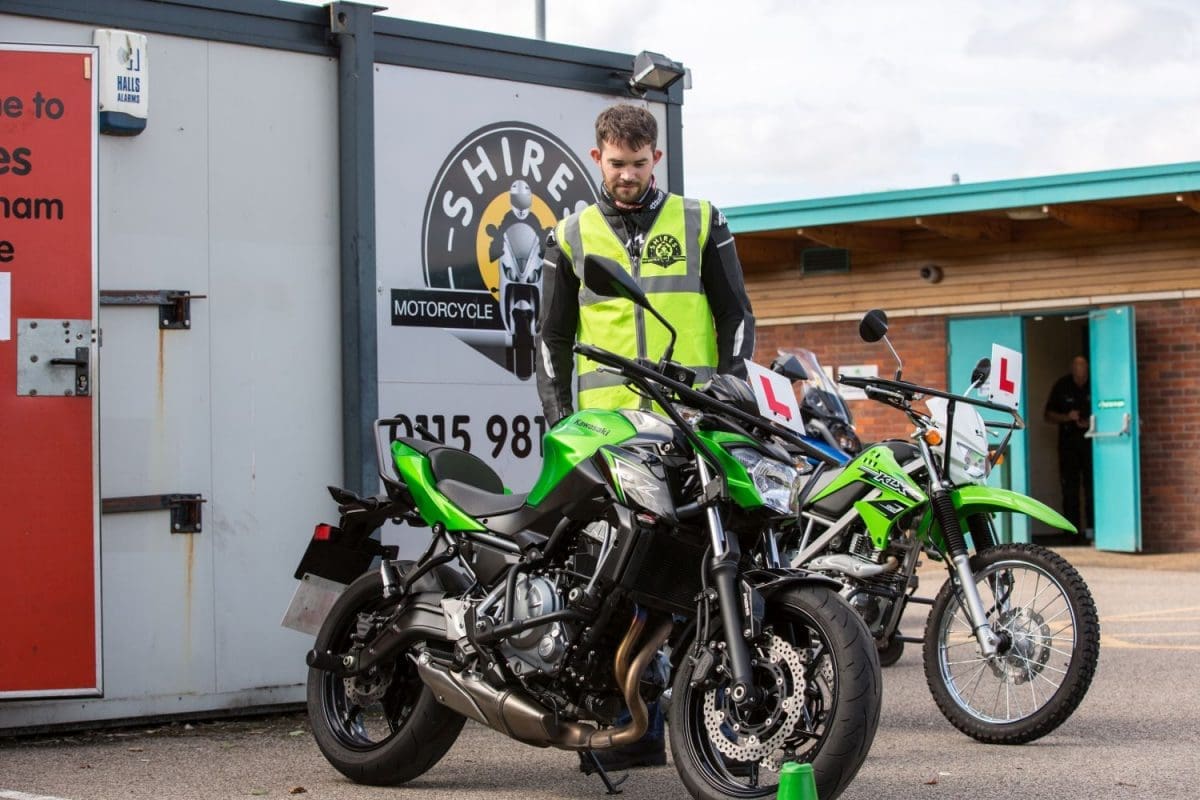
TECHNICAL SPECIFICATIONS
Kawasaki Z650 (2018)
ENGINE: 649cc liquid-cooled, four-stroke parallel Twin
POWER: 50.2 kW @ 8,000 rpm
TORQUE: 65.7 Nm @ 6,500 rpm
SUSPENSION: (F) 41 mm telescopic fork (R) Horizontal Back-link with preload adjustment
BRAKES: (F) Dual semi-floating 300 mm petal discs with dual piston calipers (R) Single 220 mm petal disc with a single-piston calipers
TYRES: (F) 120/70Z-17 (R) 160/60-17
WEIGHT: 187kg
SEAT HEIGHT: 790mm
FUEL CAPACITY: 15 litres
PRICE: £6,199
CONTACT: www.kawasaki.co.uk
DON’T FORGET!
Before you get on with your Module One and Module Two tests, you need to ensure you’ve already acquired your Motorcycle Theory Test certificate. There are two parts to a motorcycle theory test – a straightforward (multiple choice) question and answer section, and a hazard perception test. With the right approach and preparation, you should easily be able to pass your motorcycle theory test first time. To book your motorcycle theory test at a specialist centre near your, visit: www.dvsa.co.uk

